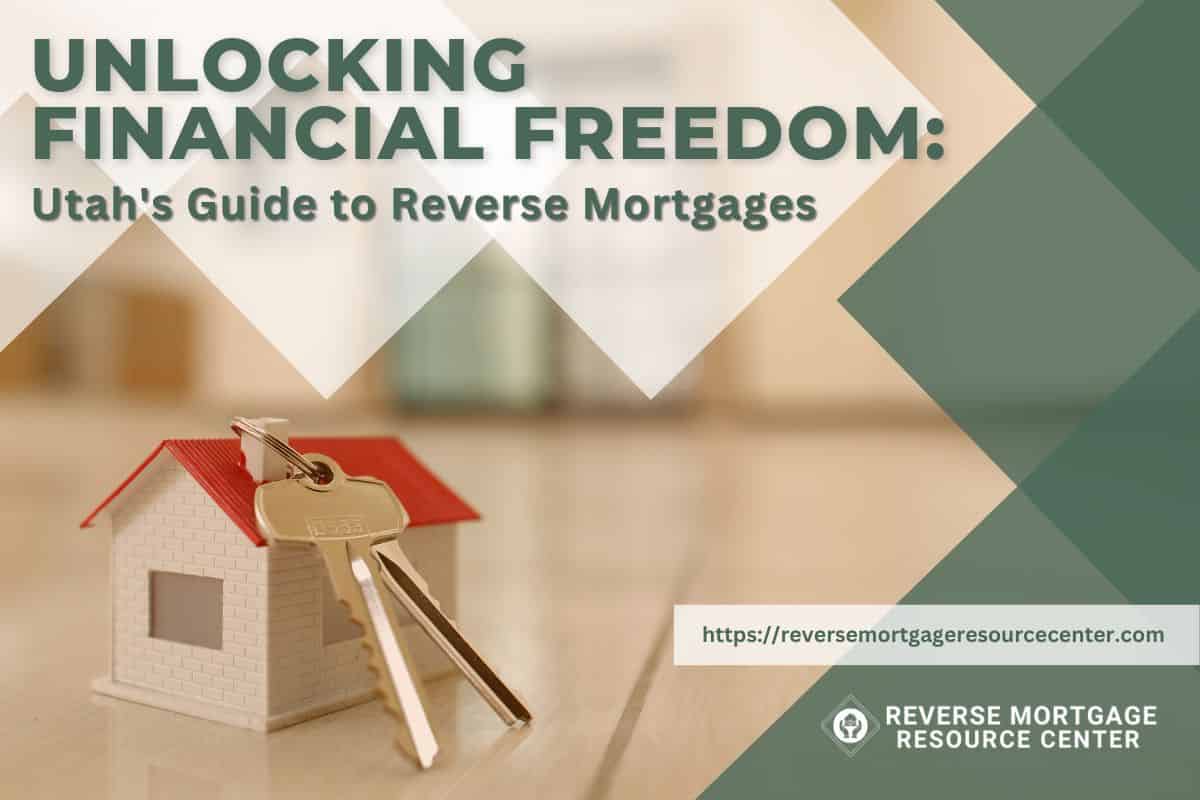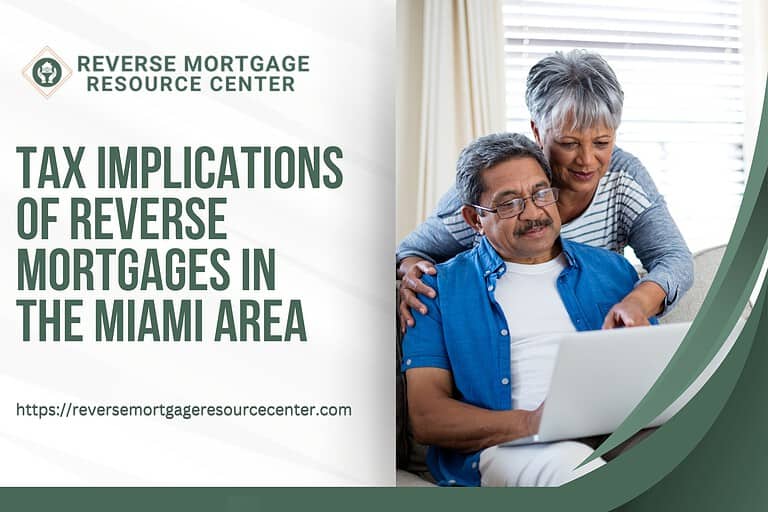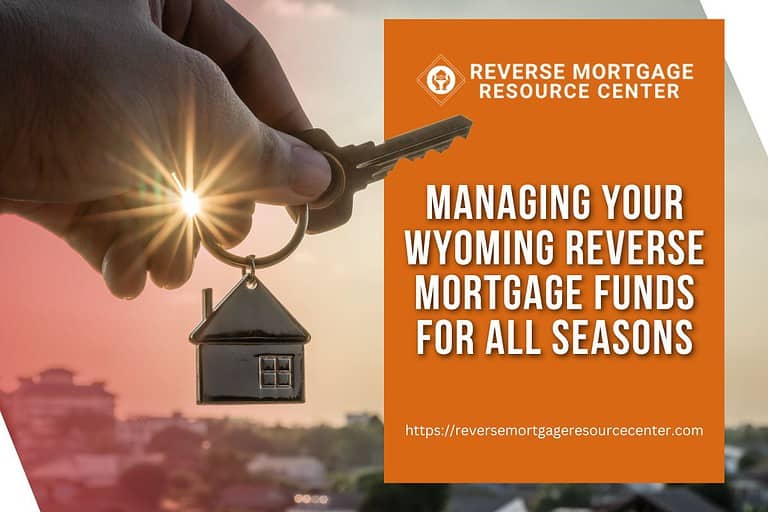Unlocking Financial Freedom: Utah’s Guide to Reverse Mortgages
As the golden years approach, many seniors face financial issues that might cast doubt on their retirement plans. Rising healthcare, home upkeep, and daily living expenditures can burden limited incomes substantially. Reverse mortgages, on the other hand, are a ray of hope for seniors in Utah. In this detailed guide, we will look at how reverse mortgages can help seniors in the Beehive State achieve financial freedom and a comfortable retirement.
Understanding Reverse Mortgages
What is a Reverse Mortgage?
A reverse mortgage is a financial technique that allows homeowners aged 62 and up to transform a portion of their home equity into tax-free cash that can be used to augment retirement income or pay for unexpected expenses. In contrast to traditional mortgages, which demand monthly payments to the lender, a reverse mortgage compensates homeowners in the form of a lump sum, monthly installments, or a line of credit.
How Does It Work?
Reverse mortgages function by allowing homeowners to borrow against the equity in their property. When the homeowner sells the house, moves out, or passes, the debt is due. The lender collects the outstanding loan sum at this stage, usually through the sale of the residence. If the home’s worth is less than the outstanding loan total, the homeowner or their successors are not personally obligated to repay the debt.
Types of Reverse Mortgages
1. Home Equity Conversion Mortgage (HECM)
The Home Equity Conversion Mortgage (HECM) is the most common type of reverse mortgage. It provides various disbursement methods, including a lump sum, monthly installments, and a line of credit. Because the federal government backs them, HECMs provide a critical safety net for seniors, guaranteeing that borrowers receive timely payments.
2. Proprietary Reverse Mortgages
Private lenders offer proprietary reverse mortgages, which the government does not back. They frequently have higher loan limits, making them appropriate for homeowners with higher house values. However, they may have greater fees and interest rates than HECMs.
3. Single-Purpose Reverse Mortgages
Single-purpose reverse mortgages are often provided by state or municipal governments or charitable organizations. These loans are intended for specific objectives such as home repairs or property taxes, and they have lower borrowing limitations than HECMs.
Benefits of Reverse Mortgages for Utah Seniors
1. Supplementing Retirement Income
One of the key benefits of a reverse mortgage is that it can supply a consistent income stream during retirement. Many Utah elders consider their residences to be a big amount of their fortune. A reverse mortgage enables them to access this home equity without selling their house, offering a financial lifeline to cover expenditures and maintain their standard of living.
2. No Monthly Mortgage Payments
Unlike standard mortgages, which require homeowners to make monthly payments to the lender, reverse mortgages do not require homeowners to make monthly mortgage payments. Seniors can benefit from home equity without incurring additional costs, alleviating financial stress.
3. Retain Homeownership
One prevalent misperception concerning reverse mortgages is that they require homeowners to relinquish ownership of their homes. In actuality, seniors who choose a reverse mortgage keep full ownership and control of their houses. They can stay in their homes for as long as they choose, and the loan only becomes due when they leave.
4. Tax-Free Proceeds
The funds from a reverse mortgage are considered loan proceeds rather than income. As a result, they are exempt from federal income tax. This tax-free income is especially beneficial for the elderly on fixed incomes.
Eligibility and Requirements
1. Age and Homeownership
You must be at least 62 years old and own your house outright or have sufficient equity to qualify for a reverse mortgage in Utah. Your principal residence is the most common property type eligible for a reverse mortgage.
2. Financial Assessment
While credit scores and income are not considered to establish reverse mortgage eligibility, lenders will look at your capacity to satisfy financial commitments like property taxes and homeowners insurance. This evaluation ensures that you can continue to maintain your home.
3. Counseling
Before applying for a reverse mortgage, you must attend a counseling session with a HUD-approved counselor. This workshop is intended to help you make an informed decision by ensuring that you completely understand the terms and ramifications of a reverse mortgage.
How to Apply for a Reverse Mortgage in Utah
Locate a HUD-approved lender: Begin by conducting research and picking a trustworthy reverse mortgage lender. They will help you through the application procedure.
Counseling: As previously stated, you must participate in a session with a HUD-approved counselor. The website has a list of approved counseling agencies.
Loan Application: Complete the loan application in collaboration with your chosen lender. Throughout this phase, you will select the disbursement plan that best meets your financial needs.
Appraisal: The lender will appraise your home to ascertain its market value. The amount you can borrow will be affected by this appraisal.
Underwriting and Approval: The lender will examine your financial documents and the appraisal report. When your application is approved, you will receive the loan terms and closing information.
Closing: The last step is to sign the loan documentation. After completing the transaction, the funds will be disbursed to you in the specified method.
Considerations and Risks
While reverse mortgages have numerous advantages, they are not without dangers and considerations. Utah seniors should be aware of the following:
1. Loan Costs
When compared to standard mortgages, reverse mortgages may have higher upfront fees. Examples are origination fees, mortgage insurance premiums, and closing costs. It is critical to comprehend these costs and how they will affect the entire loan.
2. Home Value
The appraised value of your home determines how much you can borrow with a reverse mortgage.
3. Impact on Heirs
The reverse mortgage becomes due upon your passing or the sale of the residence. Your heirs must repay the loan if they want to keep the house. They may also decide to sell the house to pay off the loan.
4. Impact on Government Benefits
Receiving a reverse mortgage lump sum payment may affect your ability to qualify for programs such as Medicaid or Supplemental Security Income (SSI). You should speak with a financial counselor to understand the potential impact on your benefits.
REVERSE MORTGAGE RESOURCE CENTER ~lIVE lIFE ON yOUR tERMS~
Our Lending Team has been serving our clients since 2004. We are passionate about serving our clients with integrity to help them achieve their financial goals.







